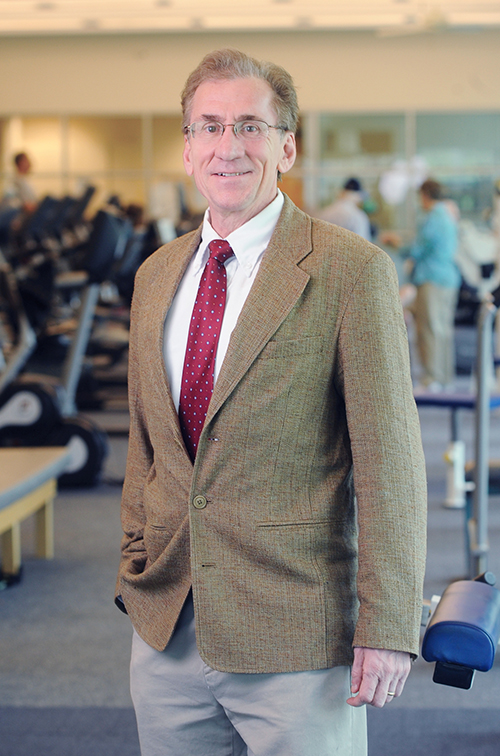 Two members of the UAB/Lakeshore Research Collaborative will take part in the White House Summit and Research Forum on Improved Health and Fitness for Americans with Disabilities, on Oct. 6-7 in Washington, D.C.
Two members of the UAB/Lakeshore Research Collaborative will take part in the White House Summit and Research Forum on Improved Health and Fitness for Americans with Disabilities, on Oct. 6-7 in Washington, D.C.
The summit and research forum are presented by the President’s Council on Fitness, Sports and Nutrition and the Eunice Kennedy Shriver National Institute of Child Health and Human Development.
University of Alabama at Birmingham School of Health Professions Lakeshore Foundation Endowed Chair in Health Promotion and Rehabilitation Sciences James Rimmer, Ph.D., and Amy Rauworth, director of policy and public affairs for Lakeshore Foundation, will make presentations at the event.
The purpose of the summit is to share best practices for implementation of the I Can Do It, You Can Do It! program in K-12 schools, colleges and universities, and community-based settings, and to encourage stakeholders to commit to disability inclusion in physical activity, nutrition and obesity programs. The summit will be webcast live from the Eisenhower Executive Office Building on Monday, Oct. 6, from 12:30-4:30 p.m. EDT.
The Research Forum will be held Tuesday, Oct. 7, in the Great Hall of the Hubert H. Humphrey Building. Invited speakers at the forum will examine knowledge gaps and research opportunities in diet, exercise, motivation and outcomes, for the purpose of improving the health and quality of life of all children with disabilities.
Rauworth will address the summit with a presentation on community inclusion, with references to the work of the UAB/Lakeshore Research Collaborative and the National Center on Health, Physical Activity and Disability as models to build health equity for people with disability at a local, state and national levels.
“A truly facilitating community is one in which health promotion activities are as accessible to people with disability as they are to people without disability,” Rauworth said. “The lack of participation in physical activities is a serious public health concern for all Americans, but even more so for the approximately 56 million Americans with disability who are at a much greater risk for developing serious health problems associated with a sedentary lifestyle.”
Rimmer will moderate a panel at the research forum titled “Psychology, Motivation and Environment Perspective and Children with Disabilities.” He will also sit on a panel that provides a final summation to the entire forum.
“Physical activity can provide individuals with disability the strength and stamina required to participate in all aspects of life actively and successfully,” Rimmer said. “By working to prevent secondary conditions while providing active opportunities for all, we can improve the quality of life for people with disability now and in the future. Efforts to create inclusive, healthy communities will directly affect generations to come.”
The UAB/Lakeshore Research Collaborative links Lakeshore Foundation’s extraordinary programs for people with physically disabling conditions with the UAB School of Health Professions’ research expertise.
